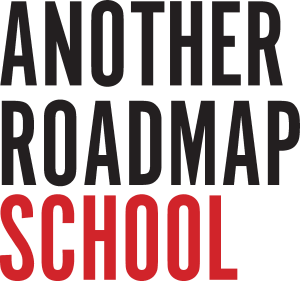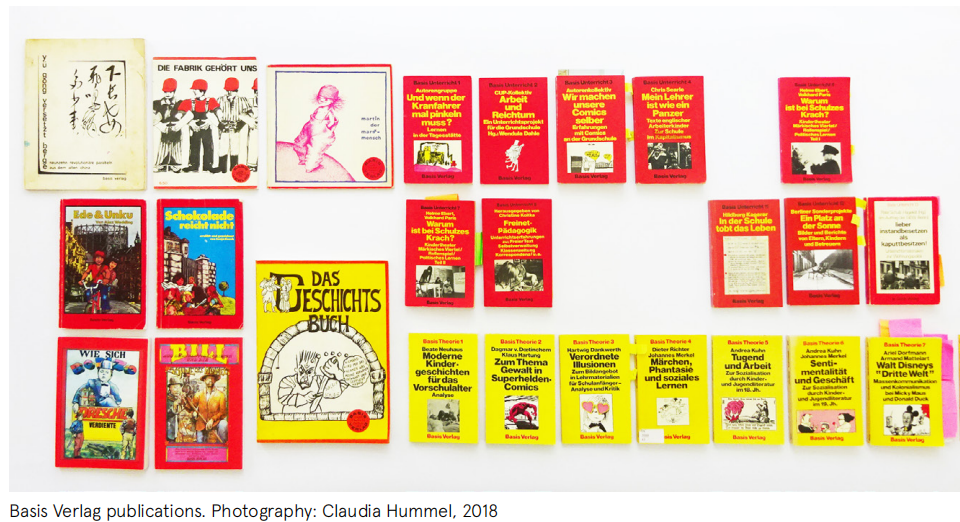Working Group: Berlin
Authors: Claudia Hummel
#critique of capitalism #critiquing school #comic #critical pedagogy #literature for children

1970, West Berlin. At the height of the Cold War, three years after the revolts staged by students, particularly in Paris, Frankfurt, and (West) Berlin, the publisher Basis Verlag started calling itself a socialist collective. The name of the publisher “Basis Verlag” unmistakably refers to the Marxist pair of terms “base” and “superstructure”. Many of the books they published were about the relations of production, and criticism of mass media. These books also asked how children (in particular those of the working classes) could gain access to designing society through an education intended to be emancipatory.
The books and materials were aimed specifically at kindergarten and primary school teachers, interested parents, and possibly at leftist academics.
In the context of the research group “Intertwining Histories”, which focuses on the various intersections of art education and colonialism, I asked myself: how and from when was colonialism associated with the criticism of capitalism and made into a subject of discussion within the pedagogic literature of West Germany?
Das Geschichtsbuch / The History Book (1971) was the first educational book I found which brought these two threads – the criticism of capitalism and colonialism – together. First published in Sweden in 1970 by the authors Annika Elmquist, Gittan Jönsson, AnnMari Langemar and Pål Ryberg, it was translated from the Swedish original by Doris Jacobi, Ingrid Schwarz and Peter Jacobi.
The Learning Unit contains a commented version of Das Geschichtsbuch and asks the following questions: Which books do we learn with and why? And, which knowledge was brought into the German speakingrealm of art and education through translations?

